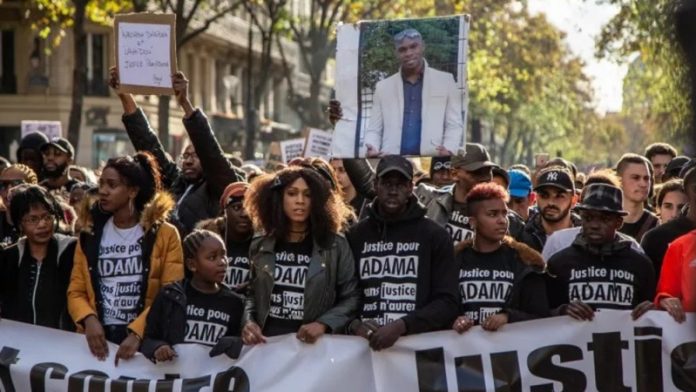In the midst of ongoing protests across the nation following the police shooting death of a teenage boy of Algerian descent, France also banned an annual march in honor of a man of an African descent who passed away in police custody in 2016.
The Val-d’Oise police prefect forbade Saturday’s march in honor of Adama Traoré, who died of asphyxiation after being pinned to the ground by police.
The development has led to increased rage and a legal challenge in court.
read more: France deploys 45,000 troops to quell police brutality protests
In the towns of Persan and Beaumont-sur-Oise, which had experienced unrest following Nahel’s death, including an arson attack on the Persan town hall, the prefect’s office warned that there was a risk of “disruptive elements” appearing.
A ban on Saturday’s march, according to supporters of Traoré justice, could exacerbate tensions, they claimed, noting that the march had been held peacefully each year for the previous seven years.
The Adama Traoré march, according to the organizing committee, was “a precious and necessary commemoration for our families and for all those who defend equality and want an end to police impunity.”
In France, the situation involving Traoré has taken on symbolic significance. In recent years, he has been referred to as “France’s George Floyd,” in reference to the 2020 US case of an unarmed African American man who died of asphyxiation after a white officer knelt on his neck.
La France Insoumise MP Clémentine Autain claimed the ban was a result of political considerations. She declared: “The government’s decision to outlaw these democratic and nonviolent forms of expression is irresponsible.”
The most recent unrest has brought back memories of the 2005 riots, which shook France for three weeks and prompted then-President Jacques Chirac to declare a state of emergency.
The United Nations has already warned France against using excessive force by French law enforcement, stating that Paris must address serious problems with racial discrimination among French law enforcement personnel.













